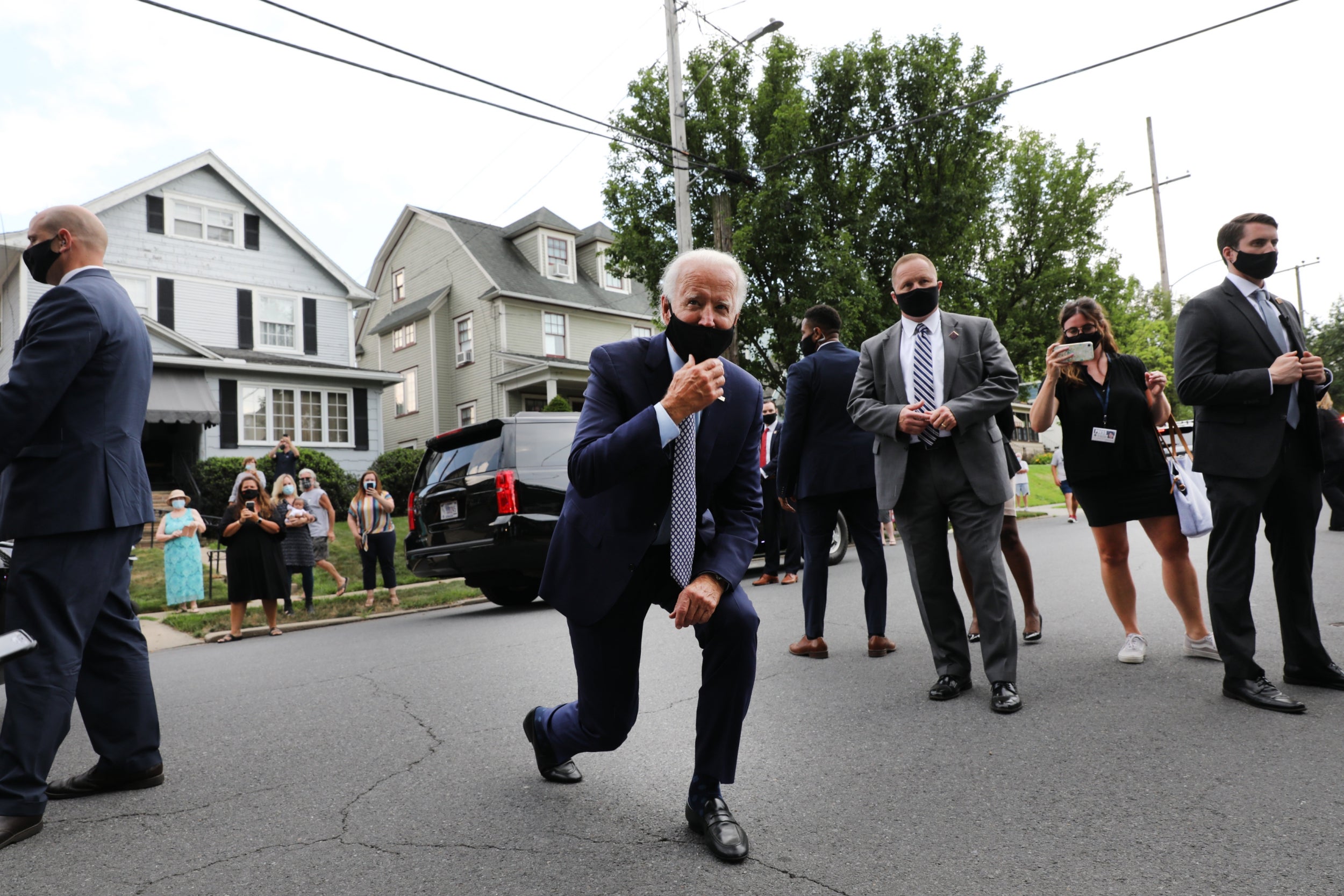Biden proposes $700bn plan to revive US economy, contrasting it with Trump's 'America First' policies
Democratic candidate announces 'Build Back Better' manufacturing investments while criticising president's 'failure' to live up to economic promises
Joe Biden has revealed a $700bn (£545.4bn) domestic spending plan to revitalise American manufacturing and business, a direct rebuke of Donald Trump‘s “America First” agenda that the former vice president said is a failure measured by its ”terrible human cost and a deep economic toll”.
The presumed Democratic presidential nominee’s ”Build Back Better” plan offers a competitive vision of the economic nationalism on which the president relied in his 2016 campaign.
“I do not buy for one second that the vitality of American manufacturing is a thing of the past,” the former vice president said in prepared remarks from Pennsylvania on Thursday. “It starts with a pretty basic idea: when we spend taxpayer money, we should use it to buy American products and support American jobs.”
Mr Biden argued that the future of America’s economy must meet several crises, including racial justice, the climate emergency, and the public health crisis from coronavirus.
The former vice president has criticised Mr Trump’s agenda as the US faces widespread unemployment and reliance on foreign goods, while Republicans have approved generous tax cuts to wealthy Americans, the White House has attacked the Affordable Care Act without a viable alternative to guarantee healthcare for millions of Americans, and the president insists that the US economy would rebound despite a lack of significant federal relief for out-of-work Americans and businesses during the pandemic.

“I do not accept the defeatist view that the forces of automation and globalisation mean we can’t keep well-paid union jobs here in America, and create more of them,” he said.
His massive infrastructure spending plan proposes a $400bn (£311.7bn) federal investment in “products and materials our country needs to modernise our infrastructure, to replenish our critical stockpiles, and to enhance our national security,” followed by another $300bn (£233.7bn) investment over four years for research and development, a “mobilisation ... in ways not seen since World War II,” Mr Biden said.
The efforts would create 5 million new jobs and revive jobs lost over the last year, he said.
He also proposes raising the corporate tax rate to 28 per cent following Republican cuts in 2017 that dropped it to 21 per cent, while boosting small businesses and ending what he called ”shareholder capitalism” that allows large companies like Amazon to avoid paying income taxes.
The announcement comes amid a rollout of new policy proposals from the campaign and a day after the release of policy recommendations from task forces made up of members of the Biden camp as well as progressive former candidate Bernie Sanders.
That 110-page document, aimed at unifying moderate Democrats and progressives who have fought to move the party left, will help determine the party’s platform.
A task force on the climate crisis, made up of Democrats like Alexandria Ocasio-Cortez who have pushed for a Green New Deal, has signalled more ambitious timelines for achieving net-zero emissions than the Biden campaign had initially sought.
In his remarks on Thursday, Mr Biden said his campaign will soon announce ”an updated blueprint for how we build a modern, safe, sustainable infrastructure and clean energy economy – how we make sure the communities who have suffered the most from pollution are first to benefit from this investment.”
He also called for investments in caregivers and service workers as well as a ”comprehensive agenda for racial equity in this country” by examining wealth disparities, expanding affordable housing, and investing in education and black- and Native-owned businesses.
Join our commenting forum
Join thought-provoking conversations, follow other Independent readers and see their replies
Comments
Bookmark popover
Removed from bookmarks